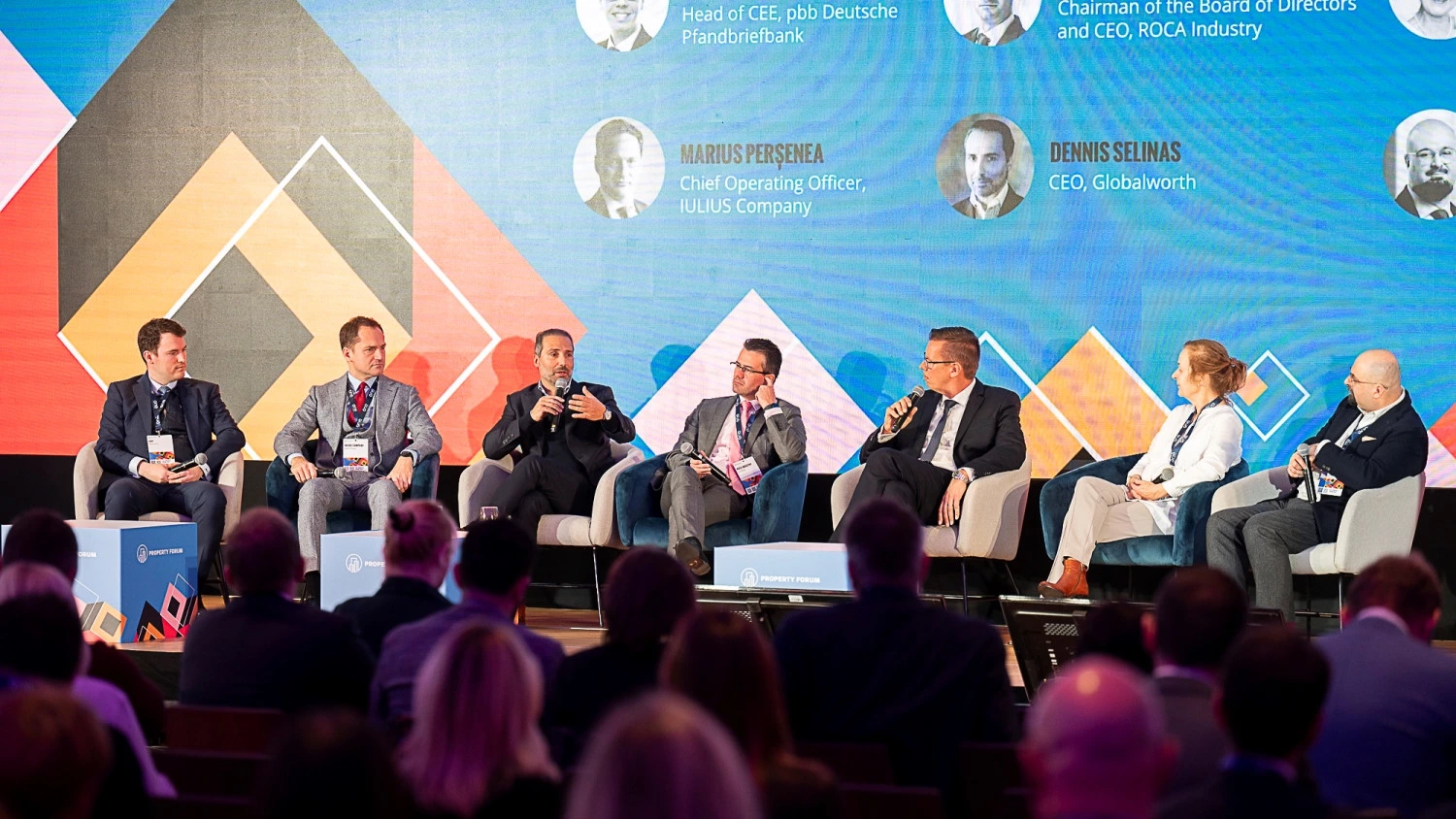
Real estate financing has been facing various challenges including the need for more bank and debt fund participation, better understanding and collaboration between Eastern and Western Europe, and last but not least exploring opportunities in new real estate sectors, such as data centres, and developing financing solutions for these emerging asset classes. Outlooks and solutions have been discussed at the financing panel of CEE Property Forum 2024 in Vienna.
The chair of the panel, Dieter Knittel, Head of CEE at Deutsche Pfandbriefbank, opened the discussion by exploring the focus on specific asset classes and regions.
Dennis Selinas, CEO at Globalworth explained that the company's focus on offices was a natural progression from its founding and the sector's yield premium in Central Eastern Europe. „When financing became available and growth was possible, Poland has been chosen for its strong fundamentals like human capital availability, strong growth and a gap to cover between where we stand economically and the EU average.“
Denis also emphasised the importance of differentiation in real estate, noting that size plays a crucial role in commanding better returns and performance: „We followed the idea to become a player of size in a segment instead of diversifying too many segments. We are the leading company in terms of proportional overall stock, that's where we can command better returns, better rents and better overall performance. Whereas in cities where we have only one asset that isn't achievable.“
The flexibility of banks in financing other asset classes like data centres and hotels was another question of the day. „How do you see the bank support in different real estate asset classes?“ Dieter turned to Lenka Kostrounová, Director, Real Estate Finance at CSOB.
Lenka admitted that „CSOB is a very conservative lender, which helps to overcome crisis periods. It has a lot of clients active not only in the Czech and Slovak Republic but also in Poland and Austria. So it's good to follow them, and to exchange the expertise“. Speaking about diversification Lenka said: „It's really good to have a balanced portfolio: office, retail, logistic and residential. And then everything, what we finance must be ESG related.“
Ionut Bindea, Chairman of the Board of Directors and CEO at ROCA Industry shared his view: „Banks are facing a lot of constraints from regulators, from shareholders, from the green activists, and that gives them very small room for manoeuvre.“
Dieter asked whether alternative financing sources, such as private equity and credit funds, can bridge the gap between developer needs and bank constraints. Ionut added: „Investments like data centres or hotels are more prone to alternative resources, as there is a higher risk than banks are willing to take.“
„The data centres are a segment that we are looking into. They will be the next year's thing. And we see the transaction all over Western Europe now coming slowly closer to our region,“ pointed out Hannes Wimmer, Managing Director, Loan Capital Markets at Erste Group Bank AG and predicted: „We expect a wave of rolling up the landscape, because there is the demand, and it comes from various sources.“ Hannes shared Erste's experience with a hotel segment: „We love to finance hotels. For this segment, we have a dedicated team. The growth rates are there. However, running a hotel is more tricky. It is like running an excellent shopping centre, including the management component and the expertise .“
Panelists agreed that the CEE real estate market needs to continue to focus on providing high-quality, differentiated real estate products that can command better returns and rents, leveraging the companies' size and market-leading positions.
Marius Perșenea, Chief Operating Officer at IULIUS Company, Romania, pointed out the long-term benefits of aligning projects with the local community. „In 2010 we took a strategic decision to invest just in large-scale, centrally located mixed-use projects. People need socialising, go out, reach new experiences. Therefore in our mixed-use projects, we include as many experiences as possible, besides the retail part and the office part, which are bricks in the real estate world. We have many services, dining, restaurants or sports entertainment. We are creating a location. It's called a city within the city.“ The company plans to continue expanding into new cities like Cluj and Constanta, driven by the success of previous projects. Marius admitted the differences in funding availability between countries like Poland and Romania, with Poland being well-connected to Western Europe and Romania experiencing consolidation among lenders: „There is still a border between Eastern and Western Europe when it comes to real estate funding.“
Better understanding and collaboration between Eastern and Western Europe remains one of the challenges for the upcoming period. „The CEE market is still underestimated. In terms of potential economic growth, it is two, three times the European average, and Western European investors often oversee that,“ admitted Maarten Otte, Head of Investor Relations, CTP. „Asian manufacturers are looking for production space in Europe, and that's one of the incremental demand drivers. Especially the Central and Eastern European region benefits a lot from it, as labour costs are simply much lower of what it is in Western European markets,“ Maarten concluded.



